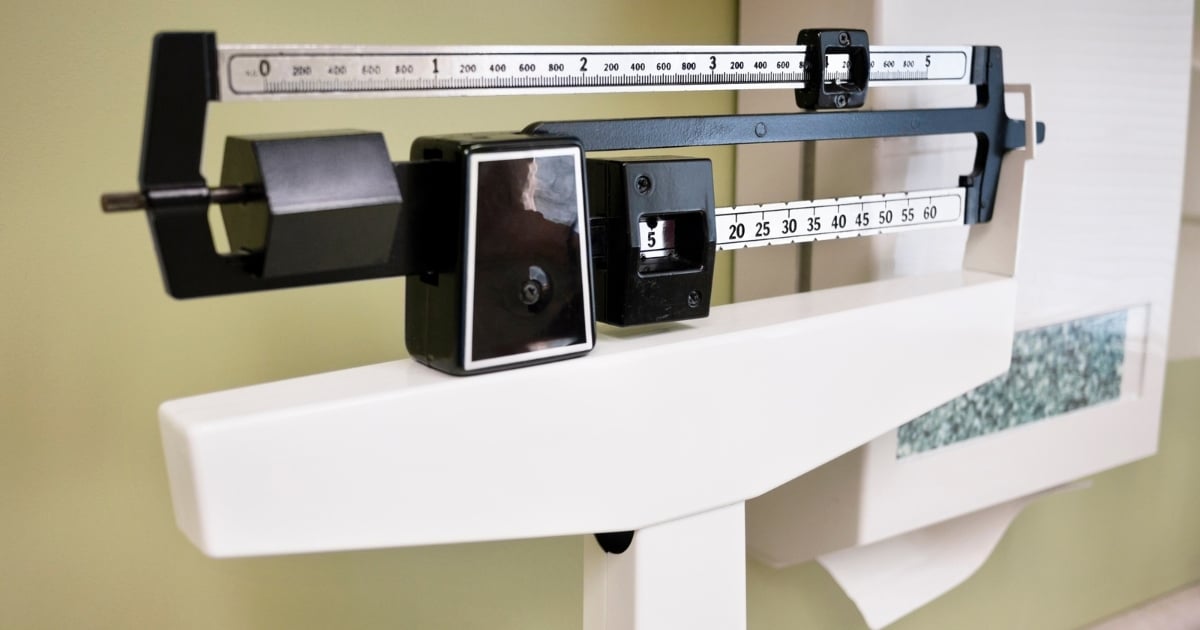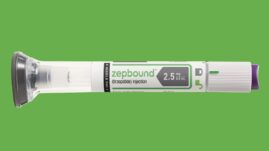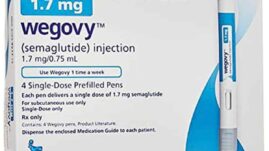Zepbound and Wegovy are weekly injectable medications approved by the U.S. Food and Drug Administration (FDA) for chronic weight management.

Key Points
- Both medications can lead to significant weight loss and improvements in blood sugar levels, but they may have differing side effects.
- In clinical trials, patients taking Zepbound have lost more weight on average than people taking Wegovy.
- Zepbound, with its dual GIP/GLP-1 receptor activation, may be associated with a higher incidence of gastrointestinal side effects.
- Zepbound is approved for use in adults aged 18 and older, while Wegovy is available for individuals aged 12 and older.
- Deciding which medication is right for you is a choice that should be made with your healthcare provider based on your health history, goals, and lifestyle.
Table of Contents
- What is Zepbound?
- What is Wegovy?
- What are the active ingredients in Zepbound vs. Wegovy?
- Why do people take Zepbound or Wegovy?
- How are Wegovy and Zepbound similar?
- How are Zepbound and Wegovy different?
- Is Zepbound better than Wegovy?
- Can I switch between the two drugs?
- Can I get off my diabetes medications if I lose enough weight on Zepbound or Wegovy?
- How much do Zepbound and Wegovy cost?
What is Zepbound?
Zepbound (tirzepatide) is a weekly injectable treatment designed for long-term weight management.
Belonging to the class of medications known as dual glucose-dependent insulinotropic polypeptide (GIP) and glucagon-like peptide-1 (GLP-1) receptor agonists, it mimics two of the body’s natural hormones that control hunger and blood glucose regulation.
Zepbound is approved for people ages 18 and above who are dealing with obesity (body-mass index [BMI] of 30.0 or more) or who are overweight (BMI of 25.0 or more) and also have at least one weight-related health issue, such as high blood pressure, high cholesterol, type 2 diabetes, sleep apnea, or heart disease.
In studies, it has been shown to help people lose weight and improve blood pressure, blood sugar, and cholesterol levels.
By increasing feelings of fullness and improving insulin sensitivity, along with slowing stomach emptying, Zepbound contributes to reduced caloric consumption.
What is Wegovy?
Wegovy (semaglutide) is a GLP-1 receptor agonist medication that is approved for chronic weight management.
In addition to helping weight loss, Wegovy may also lower blood sugar levels and improve A1c (a measure of glucose control over the previous 2 to 3 months). However, like Zepbound, it is not approved as a diabetes medication.
Wegovy is approved for chronic weight management in people who are dealing with obesity (BMI of 30 or higher) or who are overweight with at least one weight-related health condition, such as high cholesterol, high blood pressure, or type 2 diabetes.
The medicine is for use in people ages 12 years and older. Adolescents must have a BMI at or above the 95 percentile for their age and sex to qualify for the medicine.
What are the active ingredients in Zepbound vs. Wegovy?
The active ingredients in Zepbound and Wegovy are different, which means you might react differently to the medications in terms of results and side effects.
Zepbound contains tripeptide as its active substance, while Wegovy contains semaglutide.
Notably, Zepbound shares its active ingredient with the diabetes medicine Mounjaro, and similarly, Wegovy’s active ingredient is also found in the diabetes medicine Ozempic.
Despite these similarities, it’s important to note that Mounjaro and Ozempic are specifically approved for managing type 2 diabetes, not for obesity or chronic weight management purposes.
Why do people take Zepbound or Wegovy?
People are often prescribed Zepbound or Wegovy for weight loss or to manage their weight over the long term.
Although these medications are not specifically approved by the FDA to manage blood sugar levels or insulin resistance, healthcare providers may sometimes prescribe them off-label (in a manner not officially approved by the FDA) to help with these conditions.
It’s important to note that neither Zepbound nor Wegovy has received FDA approval for treating type 2 diabetes.
For people who don’t meet the criteria for Zepbound or Wegovy, other GLP-1 receptor agonists, such as Ozempic (semaglutide), Trulicity (dulaglutide), Victoza (liraglutide), or Mounjaro (tirzepatide), might be considered. These alternatives are approved for diabetes management but can also contribute to weight loss and improved insulin sensitivity.
How are Wegovy and Zepbound similar?
These medications are similar in a few ways, including:
They help with weight loss
In clinical trials for Zepbound, study participants who completed a 36-week treatment protocol experienced an average weight loss of 20.9 percent.
Overall, 89.5 percent of study participants receiving Zepbound at 88 weeks maintained at least 80 percent weight loss, compared to 16.6 percent receiving the placebo (inactive treatment).
The overall weight loss from the start of the study to week 88 was 25.3 percent for those taking Zepbound, versus 9.9 percent for those taking the placebo.
Wegovy is also very effective in helping with weight loss. In one study, adult participants taking Wegovy lost 15 percent of their starting weight, on average. In a separate study, adolescents taking Wegovy lost 16 percent of their starting weight, on average.
Weight loss on these medications is typically sustainable as long as they are consistently taken.
See more in: Can Zepbound Help You Lose Weight? and Can Wegovy Help You Lose Weight?
They improve blood sugar levels and A1c
While neither of these medications are approved for the treatment of diabetes, they do improve blood sugar and A1c levels.
In clinical trials, Zepbound was associated with significant improvements in blood sugar and A1c levels. This may be because GIP/GLP-1 medications improve insulin sensitivity and reduce glucagon secretion, which in turn decreases the liver’s production of glucose.
Similarly, the STEP 2 trial looked at Wegovy’s effects on blood sugar and A1c levels in people who have type 2 diabetes. The researchers found that participants taking the medication not only lost weight but also saw statistically significant improvements in their blood sugars and A1c levels.
Since many people who qualify clinically for Zepbound and Wegovy also live with type 2 diabetes, this is great news for blood sugar and A1c management.
They have similar side effects
Like any medication, Zepbound and Wegovy can cause adverse side effects, many of which are similar due to their shared class of GLP-1 receptor agonists.
Common side effects include:
- nausea
- vomiting
- diarrhea
- constipation
- stomach pain
- suppressed appetite.
People with diabetes should be cautious of the potential for low blood sugar, especially if they are taking other diabetes medications known to increase this risk.
If you experience injection site reactions, or in the case of Wegovy, any symptoms that could indicate thyroid issues, consult your healthcare provider.
Always seek immediate medical attention for severe symptoms such as significant fever, vision changes, unusual weakness or pain, signs of an allergic reaction, or if you suspect dangerously low blood sugar levels.
If side effects are impacting your quality of life, your healthcare provider may adjust your dosage or consider alternative treatments.
Find out more in Zepbound Side Effects and Wegovy Side Effects: What You Need to Know.
They are injectable medications, taken once weekly
Both Zepbound and Wegovy are administered as subcutaneous injections, meaning they are injected under the skin.
These medications are designed to be taken once weekly. It’s recommended to administer the injections at the same time, on the same day each week to maintain consistent medication levels in the body.
They do not replace insulin
Many people with diabetes may be prescribed Wegovy or Zepbound. However, if you’re on insulin therapy, these medications do not replace the need to take insulin.
They work by enhancing the body’s own insulin response and reducing glucagon secretion, which can help manage blood sugar levels. Accordingly, they may, over time, reduce the amount of insulin you require. However, they are not insulin, nor are they replacements for insulin.
They can be taken with or without food
Unlike insulin, these medications do not cause acute low blood sugar levels. They can be taken with or without food without fear of hypoglycemia (low blood sugar) or increased nausea.
Also, unlike metformin, they do not require food for maximum absorption.
How are Zepbound and Wegovy different?
These medications differ in a few key ways, including:
They have different active ingredients
The active ingredient in Zepbound is tirzepatide and the active ingredient in Wegovy is semaglutide.
If you are allergic to one of these active ingredients, you may be able to take the other medicine. Be sure to speak with your provider about any potential risks.
Zepbound may cause more severe side effects
While Zepbound and Wegovy both act on GLP-1 receptors to produce their effects, Zepbound also targets GIP receptors due to its dual agonist mechanism.
This unique action may influence its side effect profile, potentially leading to different or additional adverse effects compared to those typically associated with GLP-1 receptor agonists like Wegovy.
It’s important to discuss with your healthcare provider the potential risks and benefits of these medications, as their effects can be influenced by a range of factors including individual health conditions and treatment regimens.
Zepbound may be more effective for weight loss
A meta-analysis looking at data from multiple clinical trials suggests that Zepbound (tirzepatide) could be more effective than Wegovy (semaglutide) in reducing A1c and body weight in people with type 2 diabetes.
The analysis shows that tirzepatide at doses of 5, 10, and 15 milligrams was more effective in reducing A1c compared to semaglutide at doses of 0.5, 1.0, and 2.0 milligrams, respectively.
Additionally, tirzepatide was associated with increased weight loss benefits, especially at higher doses.
However, it’s important to note that higher doses of tirzepatide may also carry an increased risk of gastrointestinal side effects, such as nausea, vomiting, and diarrhea, especially when compared to lower doses of semaglutide.
Is Zepbound better than Wegovy?
Not necessarily, since there are unique pros and cons for both medications.
As previously noted, Zepbound has shown in some studies to offer substantial benefits in terms of weight loss and blood sugar management, possibly more so than Wegovy for some people.
However, the best choice for you will depend on how your body reacts to the medication and if you’re seeing results without too many adverse side effects.
Although Zepbound may have demonstrated a greater effectiveness for weight loss in certain studies, it may also be associated with an increased risk of gastrointestinal side effects, especially at higher doses.
This does not necessarily mean the side effects are more severe, but the frequency and tolerability of these effects should be taken into account.
Always work with your healthcare provider to determine which medication may be best suited for you.
Can I switch between the two drugs?
Switching between the two drugs should not be done without careful consideration and guidance from a doctor. Zepbound targets both GIP and GLP-1 receptors, offering a dual approach to weight management and blood sugar control, while Wegovy mainly targets GLP-1 receptors.
This difference, along with different dosing concentrations and active ingredients, means that the medications may not be directly interchangeable, and what works well for someone on one medication might not apply when switching to the other.
You may be experiencing benefits on one medication without adverse effects, but that doesn’t guarantee a similar experience with the other, due to these differences and the potential need for the body to adjust to a new medication.
It’s important to consult with your medical team before considering a switch, especially if you’re experiencing side effects with your current medication.
Can I get off my diabetes medications if I lose enough weight on Zepbound or Wegovy?
While significant weight loss resulting from Zepbound or Wegovy can improve your diabetes management, it’s important to check with your healthcare provider before making any changes to your diabetes medications.
Despite their influence on blood sugar levels, neither Zepbound nor Wegovy is insulin or is a direct replacement for diabetes-specific treatments, and they are not FDA-approved for the treatment of diabetes.
Significant weight loss or other changes in your health might require a reevaluation of your diabetes medication regimen.
If you’ve been taking Zepbound or Wegovy for some time and are experiencing an increase in low blood sugar episodes, for instance, you may need to lower your insulin doses. Speak with your doctor before making any changes to your treatments.
How much do Zepbound and Wegovy cost?
How much you pay for Zepbound or Wegovy will depend on your insurance coverage. The list price (without insurance) for Zepbound is $1,059.87 for a 30-day supply of the medication.
The list price (without insurance) for Wegovy is $1,349.02 for a 28-day supply of the medication.
Coverage and costs do vary by insurance plan, and most people only pay a fraction of the list price through insurance.
At this time, Medicare unfortunately does not cover weight-loss medications, including Zepbound and Wegovy.





